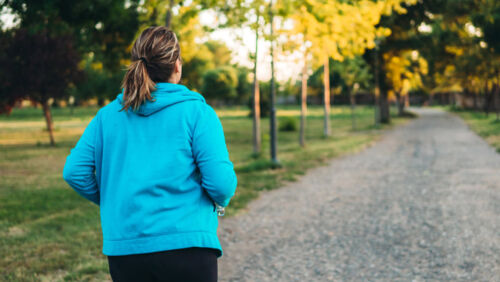A tsunami of need is coming and we are going to be hit hard
By Susan Hely
Demand for the Salvation Army's support and services is three times more than before the start of COVID-19. What's more, there is a tsunami of need coming, according to Brendan Nottle, who is a major with the Salvation Army in Melbourne.
Nottle works with people who are homeless or at risk of being homeless, with people suffering from serious mental health issues, as well as people affected by a range of addiction issues and people suffering from social poverty. He has 26 years' experience with the Salvation Army and leads the Salvation Army in Melbourne.
"We believe that for the next couple of years we are going to be hit hard as a nation," Nottle explains at the launch of the Salvation Army's Red Shield Appeal that is seeking to raise $35 million by June 30. This year the Salvos are unable to door knock because of COVID-19.
Nottle says new faces are turning up at the Salvos needing help. The majority are typically men who can't cope.
"And they are so humiliated and distressed, embarrassed and worried that they might bump into someone who knows them. Often, they bring a mate to help them navigate the system and protect them if they do meet someone they know," says Nottle
Often people need more than practical support, requiring emotional support and Nottle says this can only be provided through a relationship with helpers rather than transactional assistance.
Nottle and the Salvation Army have been instrumental in getting 216 homeless people in Melbourne off the streets and into hotel accommodation over three weeks during the COVID-19 crisis. The hotels didn't have cooking facilities, so the Salvation Army worked with Victorian State Parliament to use their kitchens to provide meals to homeless people in hotels and to a number of charities. The kitchen support has been rolled out around Australia.
Resilience NSW Commissioner Shane Fitzsimmons says the Salvation Army is not only essential during disasters but all year round. He praised the Salvation Army for being non-judgemental and providing people with hope and purpose, a sense of belonging and achievement.
"The Salvos are critical to the fabric of community and social cohesion also in the times of disaster response and recovery phases," says the former Commissioner of the New South Wales Rural Fire Service.
Fitzsimmons says his father was a big fan of the Salvos, and praised the Salvos because they didn't care about people's background, religion, or your circumstances - they lent a hand to everyone.
"In my volunteer bushfire brigade days we worked in partnership with the Salvos and they would help us out with support and counselling. I can't remember many a year in our early days when we weren't part of the annual Red Shield Appeal and didn't door knock or going up to community centres to collect money for the Salvos," says Fitzsimmons.
At a personal level, Fitzsimmons says he and his family have been the beneficiary of family counselling and support through tough times to get through all manner of challenges. He also the Salvos work hard with the RFS's critical incident teams. "They are part of the RFS community."
"I cannot think of a more deserving organisation," says Fitzsimmons.
Money raised by the end of the financial year will go to the Salvation Army's social services projects to provide care to millions of Australians living below the poverty line, victims of family violence, and those facing COVID-19 challenges.
Over the past year, the Salvation Army provided more than 1 million sessions of care to Australians in need; helped 46,000 people experiencing homelessness, provided financial counselling to more than 65,000 people, offered care to 13,000 people who were coping with family violence and served 500,000 meals and refreshments to first responders and displaced people during the recent bushfire crisis.
You can donate at salvationarmy.org.au or call 13 SALVOS (13 72 58) or use the donation button at Woolworths checkouts.
Get stories like this in our newsletters.



